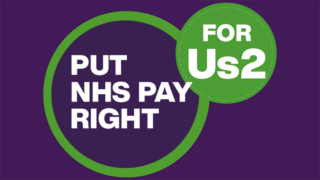More than a million families trying to get by on less than £30,000 a year are living with extreme debt and stagnating wages are making the problem worse, warns a new report published by UNISON and the TUC today.
Overall, “unsecured” household debt – not including mortgages – has now hit £353bn, having risen by £48bn between 2012 and 2015.
“Many of those affected by debt will be public service workers who have suffered eight years of zero pay rises, followed by a government imposed cap on earnings,” commented UNISON general secretary Dave Prentis today.
“This report rightly draws a link between increased debt and stagnant wage growth at a time when rent and transport costs continue to rise.
“Many families are having to make choices between paying the rent and feeding their kids.”
UK real wages fell by 10.4% between the end of 2007 and the end of 2015, the largest decline of all advanced economies and equalled only by Greece.
The report was written for the TUC and UNISON by Damon Gibbons from the Centre for Responsible Credit and found that millions of households are struggling with high repayment rates.
One in eight households, 3.2 million in total, are in so-called “problem debt”, with more than 25% of their gross household income being eaten up by debt repayments.
Of those, 1.6 million households, or one in 16, are in “extreme problem debt”, where debt repayments account for 40% of their gross household income.
Low-income households are under particularly severe pressure: around 1.2 million of the households with “extreme problem debt” have a household income of less than £30,000 a year.
Download the report, Britain in the Red, from the TUC site.
Struggling with debt? See our Debtline support service, provided by UNISON’s welfare charity There for you




